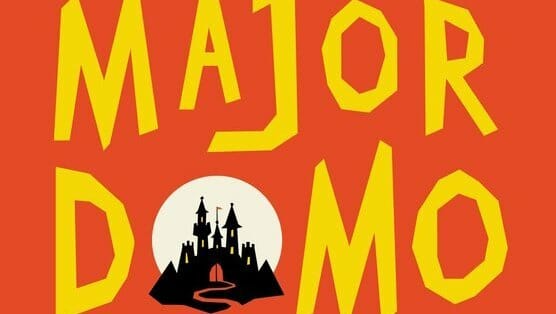Undermajordomo Minor by Patrick deWitt

The challenge of writing a decent picaresque novel isn’t so much creating a convincing hero full of quirks, nor is it bringing that hero to an unlikely triumph. The trick in creating plausible picaresque heroes is establishing them at a sort of moral antipodes to the prevailing culture that surrounds them—without letting those morality-play dynamics subsume and crush the life out of the story.
A cockeyed picaresque of the Gold Rush-era West, Patrick deWitt’s The Sisters Brothers drew much of its humor from bumbling bounty hunter Eli Sisters’ startling flashes of self-awareness, always rendered with awkward formality:
My very center was beginning to expand, as it always did before violence, a toppled pot of black ink covering the frame of my mind, its contents ceaseless, unaccountably limitless. My flesh and scalp started to ring and tingle and I became someone other than myself, or I became my second self, and this person was highly pleased to be stepping from the murk and into the living world where he might do just as he wished. I felt at once both lust and disgrace and wondered, Why do I relish this reversal to animal?
Unlike his feckless and remorseless brother, Eli approaches his violent work with a measure of regret and revulsion as he carries it out anyway. Accentuating such a subtle distinction between two professional purveyors of blunt-instrument brutality improbably preserves the buoyancy of the novel, and keeps its bizarre and jarringly violent situational humor and accumulation of absurd coincidence front and center.
 If anything, deWitt takes on an even greater comedic challenge in his new book, the relentlessly wry and often outrageously funny Undermajordomo Minor. Like Eli Sisters, Undermajordomo Minor protagonist Lucien (Lucy) Minor often seems absurdly ill-suited to his lot in life, stumbling into predicaments and characters that seem to mock him at every turn.
If anything, deWitt takes on an even greater comedic challenge in his new book, the relentlessly wry and often outrageously funny Undermajordomo Minor. Like Eli Sisters, Undermajordomo Minor protagonist Lucien (Lucy) Minor often seems absurdly ill-suited to his lot in life, stumbling into predicaments and characters that seem to mock him at every turn.
While deWitt fixed the Sisters’ adventure in place and time—Oregon and San Francisco, 1851— Undermajordomo Minor operates in the realm of the fable kingdom. From the outset, Lucy cuts a singularly unimpressive figure. Pale, sickly, spindly, given to self-serving lying, aimlessness and ennui, Lucy adopts “the carriage of one sitting in fathomless reflection, though there was in fact no motion in his mind whatsoever.”
-

-

-

-

-

-

-

-

-

-

-

-

-

-

-

-

-

-

-

-

-

-

-

-

-

-

-

-

-

-

-

-

-

-

-

-

-

-

-

-








































